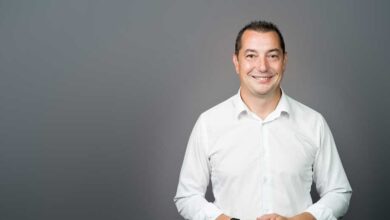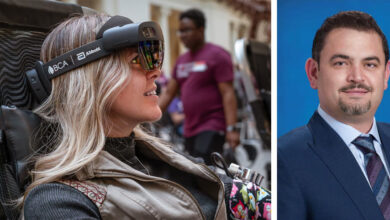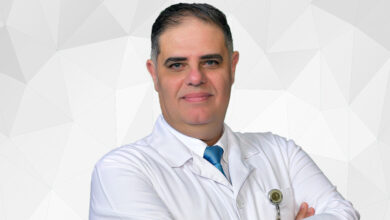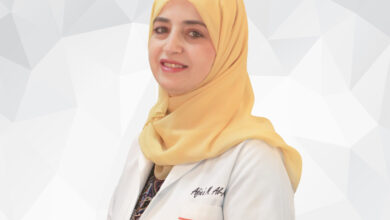Mr. Stefano Urbani
Founder of TMI – Turismo Medico Italia and Italian Healthcare
Mr. Stefano Urbani
“By completely innovating the strategy in accordance with the new market trends and taking great care in doing so, while remaining within the constraints that the pandemic currently imposes on the health tourism market.”
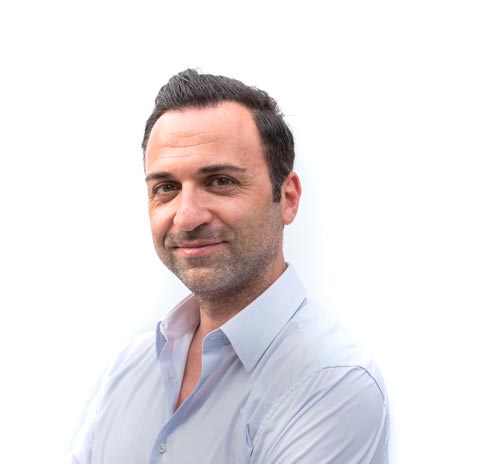
Stefano is the founder of TMI, Turismo Medico Italia. The first innovative Italian startup in the market of medical tourism, providing medical services for incoming to Italy foreign patients seeking for life treatments, medical check-ups or wellness and SPA, and providing an outbound to over ten countries in the world for Italian patients seeking for a no-life treatment abroad. As a medical tourism & international healthcare expert, he also provides advisory services to medical providers for international business development.
Trained as a management engineer in the Politecnico di Milano with an Executive MBA, he also studied Global Business Management in Boston College and Negotiation in Audencia Business School.
He also has professional experience as a Management Consultant and Corporate experience in Business Development in Italian regions, Europe, CIS and Arabic countries, Organizational and HR management, Operations, Procurement.
As You know, Italy was one of the most affected countries even before the WHO declared the pandemic on 11 March 2020, managing effectively but with great difficulty and commitment of the population the circulation of the virus Covid-19. We interviewed Stefano asking him some questions on how the medical tourism market is moving and what are his forecasts in this regard.
As travel markets start to thaw from a deep freeze, what about health tourism?
Travel market and health tourism are two very different markets for two specific reasons:
a) The market value – Travel market has earned between $5.29 trillion (1) and $8.27 trillion (2) in 2017, while health tourism has achieved between $53,768 million (3) and $439 billion (4) during the same year. As you see, there is a comprehensive deviation between the amounts in travel market (+/-20%), while this deviation in medical tourism is phenomenally high. And secondly, travel market has gained approximately thousand times more than health tourism. This means that if we have sufficient indicative data for the tourism market for medical tourism there are no reliable data;
b) The market choice lever and the target. Tourists are travelling for pleasure, patients are travelling for health reasons; they are searching for a medical service that can save their life or that it can make them feel better, in the body and in the spirit.
Because of these two reasons, linking the two markets is not appropriate (except for some wellness tourism services). However, it is undisputed to say that to be cured a patient must travel and, therefore, use the tourism market as a tool. This is the reason why we can assume that, in this world pandemic situation, the trends of travel market can be consequently compared to the trends of health tourism market.
Will medical tourism ever “return to normal”?
Social distancing, masks, disinfected transport, quarantine have to be taken into consideration when traveling abroad… the world as we know it has completely changed: the healthcare industry and medical tourism are no exception. Healthcare professionals’ expertise, healthcare workers’ pay, and travel distances are being recognized as factors of a higher value, meanwhile vaccination rates, organ donors and organ transplants, road accidents and gender are not as crucial anymore (5).
With these few words, the great changes that we can hypothesize about are already significant: increase of students in medical universities, reduction of medical visits for fear of going out of the country or localized lock-downs, reduction of the organ transplant segment and the orthopedic segment, and finally an increase in the segment of medically assisted procreation. You can only imagine how many other variables are involved and their consequences for the market. For this reason, if by “normal” we mean before the pandemic, I believe that the medical tourism market will never go back to the way it was before. Certainly not during the pandemic, but perhaps once the entire population will be immune and the virus will be defeated.
Which travelers will return? What will be their concerns, and what services will they seek?
Patients who return to travel will be seeking the same medical services they were looking for prior to the pandemic. The substantial differences will be linked to the percentage shares of each of the segments and to the reasons that will push a person to seek treatment abroad.
Complementary services (administration, accountability, logistics etc.) will be more important from the patient’s point of view.
Concerns will be linked to the travel, the local pandemic situation in the destination country, the possibility of being reimbursed in the event of a lock-down in one’s country of origin or in the country of destination. The variables are many and the complexity has increased.
As for the services, it is interesting to see an increase of medical check-ups linked to the touristic journey and the increase of the local medical tourism, within the own country.
While travel is resuming, how can providers and destinations prepare for business activity in the health, wellness, dental & medical tourism markets?
I agree with Manfred F. R. Kets de Vries (6) when he said that despite the enormous number of jobs lost, the pandemic could be an opportunity to direct our attention to other kinds of activities. What parts of the economy would we like to restore, and what parts could we do without? Given the increasing concern about our planet and the disastrous effects of global warming, do we really need all this commuting, all this air travel?
Daily downloads of the Zoom app have increased 30x year-over-year. Zoom said daily users spiked up to 200 million in March 2020, from 10 million in December 2019. Telemedicine during the coronavirus epidemic has been the doctors’ first line of defense to slow the spread of the coronavirus, keeping the social distancing and providing services by phone or videoconferencing for mild cases, to focus personal care and limited supplies to the most urgent ones.
The number of people connected is booming. Health tourism must consider that there will be a strong growth of second opinions through telemedicine tools and that people will be less inclined to travel. It just feels that we are getting ready to take a giant leap tomorrow. During the pandemic we have been able to carve out so many amazing strategies which were just not possible with fast pace routine.
Providers should invest more in technology and telemedicine, set-up their strategy with the new market rules, launch wellness documentaries, restructure and recycle entire guides and magazines and get ready for more engaging content, check and update the list of medical services to be in line with the future requests, establish new market area about international target etc.. However, I am not optimistic about destinations intended as countries. Each country will have to invest to reduce the economic impact of the pandemic internally, so I strongly doubt the government’s actions will aim at marketing its brand as a country in the health tourism market. In any case, Dr. Prem updates weekly how each country is trying to reintroduce itself in the medical sector with communication and investment actions to support incoming tourists and health tourists (7).
Which segments of these markets will return first?
Already today we are witnessing a trend that links the travel market to the medical tourism regarding preventive check-ups or second opinion check-ups. In August 2020 we received dozens of requests from Russian patients interested in check-ups both in Rome and in Milan, combining a few days with sightseeing and leisure activities… this is probably one of the markets which is being established.
We are starting to receive some questions from Italian patients interested in dental care, aesthetic plastic surgery and hair transplantation, and finally, medically assisted procreation in the European countries, as well as other countries in the world which we work with. However, they are very few compared to January 2020, before the lockdown, and the few who call us feel very insecure and anxious about traveling.
I just recently came back from an educational trip to the Thermal SPA of Abano Terme, place well known around the World for its salso-bromo-iodic water, which we are working with in the wellness market and at the moment the foreign patients, who make up more than 50% of the total, are still not present. There are no reservations for the next few months, but I believe that this sector will be one of those that will start again first, because with the pandemic the awareness of prevention has increased.
On the other hand, I am not so optimistic about life-saving treatments, such as cardio-surgical or oncological treatments, or major interventions such as orthopedic and neuro-surgical. As long as we have to live with Covid-19, there will be less cases of this type compared to before.
Among healthcare systems, now that the immediate challenges of the pandemic have passed, how difficult will it be to resume elective and ambulatory procedures?
In Italy, some elective and ambulatory procedures have already begun, such as check-ups for foreign patients. The issue will be to plan these procedures in accordance with each country’s regulations in force that oversee quarantine. The difficulty that I see entering the perimeter is the reduction in the timing between the patient’s request and the moment of delivery of the procedure, as it is not possible to plan over a medium or long term. To better manage this problem, we have broken the patient management process, which we call “All Around You”, into two phases:
I. Taking charge of the request until the treatment plan and the estimate quotation are issued;
II. Time programming.
Clearly separating these two macro-activities allows the patient to calmly start his request for treatment abroad and to manage all the actors involved in the supply chain in accordance with the developments of the pandemic situation. Obviously, this methodology is valid only for minor cases.
For resorts, spas and other operators focused on the wellness markets, will they be able to resume “normal” business?
I believe it will be challenging before the end of pandemic and disappearance of the virus. And since it seems that the period of coronavirus 19 disease will continue for some time, I suspect that the travelers’ habits will have consequently changed, and it will not be possible to apply pre-covid game schemes anymore.
How can health tourism providers and destination management organizations plan for the future?
By completely innovating the strategy in accordance with the new market trends and taking great care in doing so, while remaining within the constraints that the pandemic currently imposes on the health tourism market. In addition to this, the new model will have to be flexible and prepared to attack the market at the end of the pandemic both quickly and effectively.
With respect to your specific business, how did you experience the onset of the pandemic and the lock-down in Italy?
As medical travel consultants and medical tourism startup we are small and market sensitive. We have limited budgets and cash flow, and we are most sensitive to fluctuations in medical travel flow caused by ‘COVpanic’. We cut back on marketing and dismissed personnel, and there is a high risk to disappear from the market. We had to open a second round of investment to restart our business after the COVID-19 crisis.
What strategies are you putting in place to survive?
We are focusing on providing services for Italian patients interested in medically assisted procreation treatments abroad, as well as dentistry, aesthetic plastic surgery and hair transplantation. We have contracts with hospitals and clinics in over ten countries but now we have also started to activate the services of Italy to Italy (intra-regional).
As for foreign patients who come to Italy, we are focusing on check-ups, second opinions and wellness, thermal baths and spas. In the meantime, we are trying to tie ourselves exclusively to a well-known Italian health group to have an economic strength to withstand the devastating impact of this global crisis.
Footnotes
(1) Oxford Economics Global Travel Market Study
(2) World Travel and Tourism Council (WTTC)
(3) PR Newswire
(4) Medical Tourism Association, MTA
(5) 2020 The New York Times Company
(6) Distinguished Professor of Leadership Development and Organisational Change at INSEAD.
(7) https://drprem.com/medical-tourism/medical-tourism-updates-in-covid-crisis?fbclid=IwAR3GofAUGP85rziwwMFIj3VIFJ7BuQI2js80jCGT9IHDYiEptN5ZBfBvDrw and https://drprem.com/wellness/wellness-tourism-news-updates-and-trends-in-covid-19-crisis/?fbclid=IwAR1J-AiNbH56Ca4xjOrK4LYRtdDjftgVEMuvsDOAy1dGFRklcoo_J0OE19E













